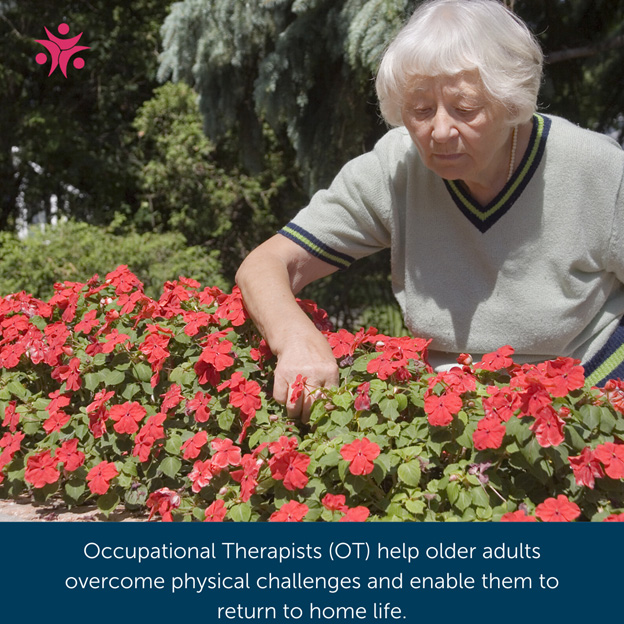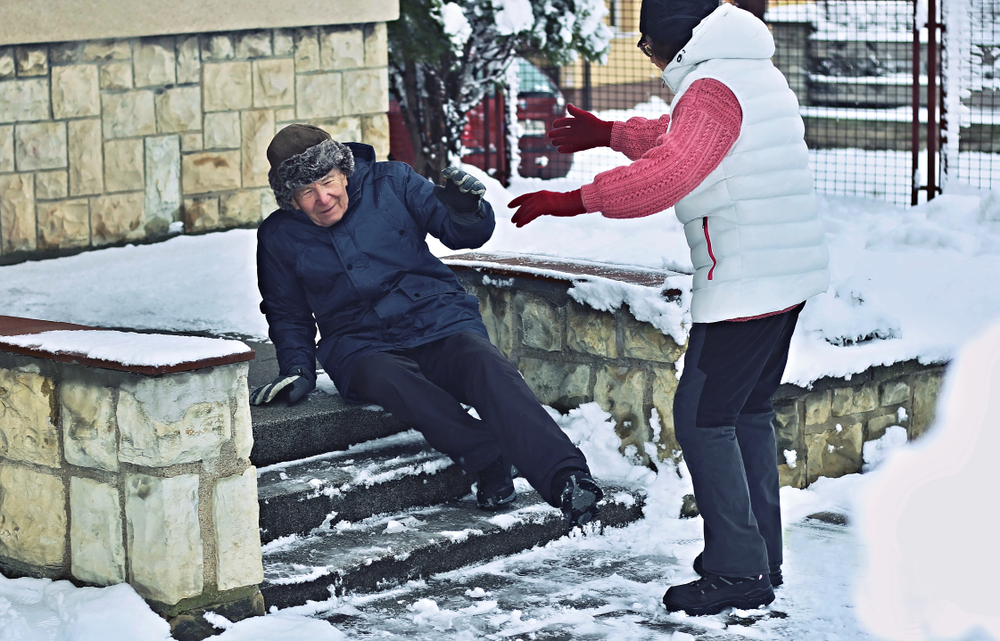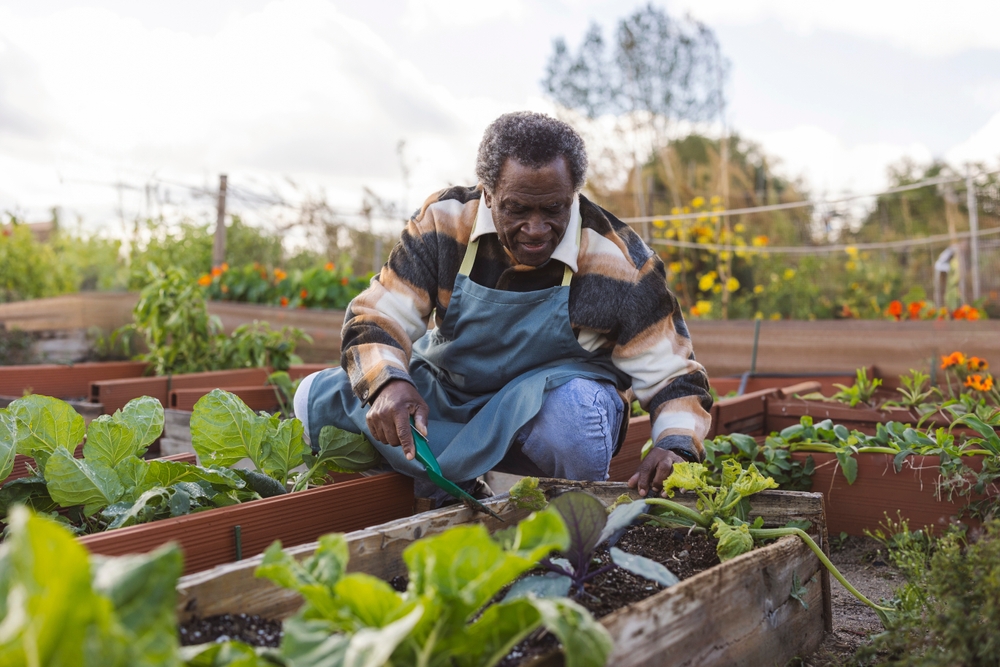Make an Appointment
Occupational therapy is a type of therapy that helps people with their everyday routines. For example, someone with a disability might require the assistance of occupational therapy to help them with everyday tasks that have become difficult or impossible with a change in circumstances.
For the elderly, simply getting older can cause major dysfunctions when it comes to everyday tasks. From memory loss to reduced physical health, completing normal activities like brushing one’s teeth or cleaning the house can become a challenge.
When working with an occupational therapist, the elderly can vastly improve their quality of life by learning countless tools to help them maintain their independence and continue to lead full lives regardless of their struggles.
In this article, you’ll learn how occupational therapy can help the elderly, what the key benefits of occupational therapy in the elderly are, and some common occupational therapy activities that often occur in aged care.
How Occupational Therapy Can Help the Elderly
Whether living at home or in an aged care facility, occupational therapy can help the elderly radically improve their quality of life.
In both circumstances, an occupational therapy aged care assessment will take place to help an occupational therapist understand the challenges that need to be met. A therapist is trained to understand what can make like better for the elderly including:
- Home and living space modifications
- Physical rehabilitation
- Mental health restoration
- Self-care implementation
- Facilitation between carers and family members
Benefits of Occupational Therapy for Elderly
With occupational therapy, there are countless benefits for the elderly. Here, we’re going over the 7 key benefits of occupational therapy in residential aged care.
Encourages Independence
Potentially the most important benefit of occupational therapy aged care is the fact that it encourages independence. As you’ll see, every benefit of occupational therapy helps the elderly become more independent, giving them the opportunity to thrive.
One of the biggest struggles facing the elderly is a loss of independence. Whether they’re physically unable to do things like drive or walk down the stairs, they may also feel limited in what they remember.
While most elderly people will welcome the help of a carer, it’s still incredibly important to their health and vitality to do as much for themselves as possible. This sense of autonomy can help them to live longer and more happily.

Improves Range of Motion
In a physical sense, occupational therapy for the elderly helps improve range of motion. With the application of personalised physical therapy exercises, patients can reduce stiffness, increase flexibility, and improve strength over time.
With these tools, occupational therapy helps prevent falls and other injuries and, again, encourages independence as the elderly become more able to physically complete tasks.
Improves Vision
Similar to physical therapy, an occupational therapist can also work with the elderly’s vision. Like a muscle, vision works a little bit like “use it or lose it.” During an occupational therapy session, you’ll work on visual and brain exercises to improve vision.
Teaches Self-Care Techniques
Self-care is a major part of occupational therapy. In aged care facilities, an occupational therapist will help develop self-care habits such as independently brushing one’s teeth, tying shoes, putting on clothes, doing the dishes, and hanging up the washing.
All of these little self-care techniques can vastly improve one’s ability to operate without as much help of a carer (benefitting both the person and the carer). By working on fine motor skills and employing habit-changing tools, self-care can be completely transformed with elderly occupational therapy.
Improves Cognitive Skills and Memory
As memory and cognitive function begin to deteriorate in old age, occupational therapy can help improve these skills and retrieve memories that were thought to be long gone.
During occupational therapy, any elderly person suffering from dementia or other cognitive problems will work on sensory stimulation and memory-building exercises to regain some of those skills.
Improves Coping Mechanisms for Chronic Pain
As our bodies age, even the simplest things can cause pain. Most elderly people live with chronic pain which can present itself in a variety of ways. Perhaps one person might cope with pain by lashing out. Others might suffer in silence. Occupational therapy can help adjust these coping mechanisms by putting healthier alternatives in place.
By working on better communication skills and educating the elderly on proactive pain control through physical exercise or ergonomics adjustments, occupational therapists can help the elderly cope with their pain.
Improves Overall Quality of Life
Overall, occupational therapy improves the quality of life for elderly people living in aged care facilities. All of these benefits feed into one another, leading to an altogether healthier, more active lifestyle that creates a ripple effect in every facet of existence.
Better physical health often encourages better mental health. Better vision encourages better memory. Better coping mechanisms encourage better physical health. And better home modifications encourage a better sense of independence.
Occupational Therapy Activities for Elderly
In order to achieve the benefits listed above, there are certain activities an occupational therapist will do with the elderly. Let’s go through some of the most common occupational activities for the elderly.
- Physical therapy such as walking, climbing stairs, and targeted exercises to work on particular areas of the body
- Activities to improve memory and cognitive function such as crossword puzzles and reading exercises
- Home modifications such as installing ramps, handrails, and other special tools
- Fine motor skills can be worked on using writing techniques, puzzles, and practising regular activities like tying shoes or clasping buttons
- Improving communication skills helps the elderly cope with pain and work more effectively with caretakers and family members
- Mental health exercises such as talk therapy and support groups to assist with bouts of anxiety and depression
Everyone is different. Each elderly person will have different needs and goals which is why it’s essential to work with an occupational therapist. These professionals offer personalised care with your specific requirements in mind.
Date Published: Thursday, May 14, 2020
Locate a Occupational Therapy
Service Near me
Get the experience & convinence you deserve to support your or a loved one's allied health needs.
Our Occupational Therapy team are currently serving & taking appointments in the following states and regions in Australia:
Need to get into direct contact with ur Client Services team? We're all ears. Call our team directly on 1300 731 733






